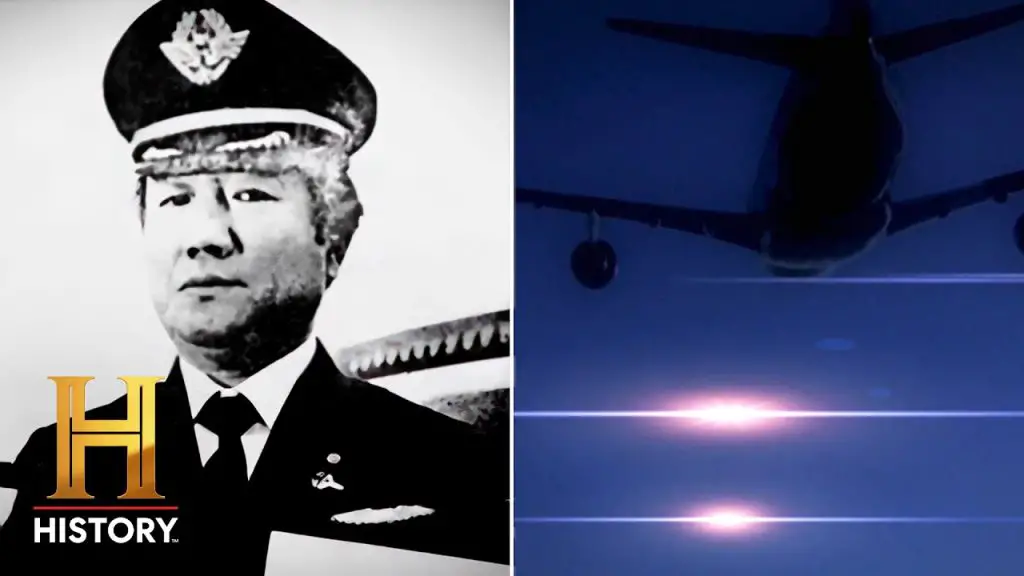
On a brisk November evening in 1986, the skies above Alaska became the stage for one of the most intriguing and well-documented UFO sightings in aviation history. This incident, involving Japan Airlines Flight 1628, captivates UFO enthusiasts and skeptics alike, offering a rare blend of eyewitness credibility, radar confirmation, and government inquiry that continues to provoke discussion and speculation decades later.
The Puzzling Pursuit in the Alaskan Sky
The crew of JAL Flight 1628 couldn’t have anticipated that their routine cargo trip from Paris to Tokyo would catapult them into the annals of UFO legend. Captain Kenju Terauchi, an ex-fighter pilot with a wealth of experience, found his 747 being shadowed by lights that defied conventional explanation. These were no ordinary lights: they maneuvered with an unsettling precision, pacing the airplane as it cruised at 500 miles per hour.
VIDEO: Ancient Aliens: GIGANTIC SPACESHIP Towers Over 747 Plane (Special)
The presence of these mysterious lights was just the prelude to a more extraordinary revelation. As the flight continued, an enormous object appeared — one that Captain Terauchi described as a “gigantic spaceship,” large enough to dwarf their 747. This object, seemingly ripped from the pages of science fiction, held the attention of the seasoned pilot and his crew, compelling a series of evasive maneuvers to avoid a collision.
A Cascade of Corroboration
In the realm of UFO sightings, corroborating evidence is as rare as it is vital. This incident sets itself apart with multiple layers of verification. Ground control radar systems mirrored the reports from the flight crew, painting a picture of an inexplicable object in close proximity to the commercial jet. In a further attempt to understand the situation, another commercial flight was diverted to observe the phenomenon. Yet, by the time they arrived, the unidentified object had vanished, leaving more questions than answers.
The Aftermath and Official Scrutiny
Following the encounter, the official response was swift. Captain Terauchi’s report prompted immediate interest from the FAA and an assortment of federal agencies, including NORAD. The detailed investigation included a comprehensive review of audio recordings, highlighting the urgent dialogues between the pilot and air traffic control. However, the incident took an unexpected turn when Captain Terauchi decided to go public with his belief in the extraterrestrial origin of the craft, a move that resulted in his reassignment within Japan Airlines.
Conspiracy or Cover-Up?
Adding to the enigma, John Callahan, the FAA’s Division Chief of Accidents and Investigations at the time, pushed for a deeper investigation. His involvement led to a high-level meeting in Washington, D.C., attended by representatives from the CIA, the FBI, and the Reagan administration. The narrative that emerged from this meeting — particularly the claim of a CIA agent dismissing the incident and confiscating evidence — fueled ongoing speculation about government transparency and the existence of UFOs.
The Enduring Legacy of Flight 1628
Decades have passed, but the UFO sighting by JAL Flight 1628 continues to resonate. Its impact is felt not only in the community of UFO researchers but also in the broader conversation about aerial phenomena and their implications for national security and understanding of the world. As governments worldwide become more open about their investigations into UAPs, the Alaska incident remains a touchstone, a case study in the complex interplay between witness testimony, technological evidence, and the endless quest for answers that lie beyond our understanding.
In the digital age, the story of Flight 1628 finds new life, as curious minds search for “UFO sightings” and stumble upon the extraordinary tale of that fateful night over Alaska. Whether you’re a steadfast believer or a staunch skeptic, the story of JAL Flight 1628 offers an undeniable intrigue that continues to challenge our perception of the skies above.


Leave a Reply